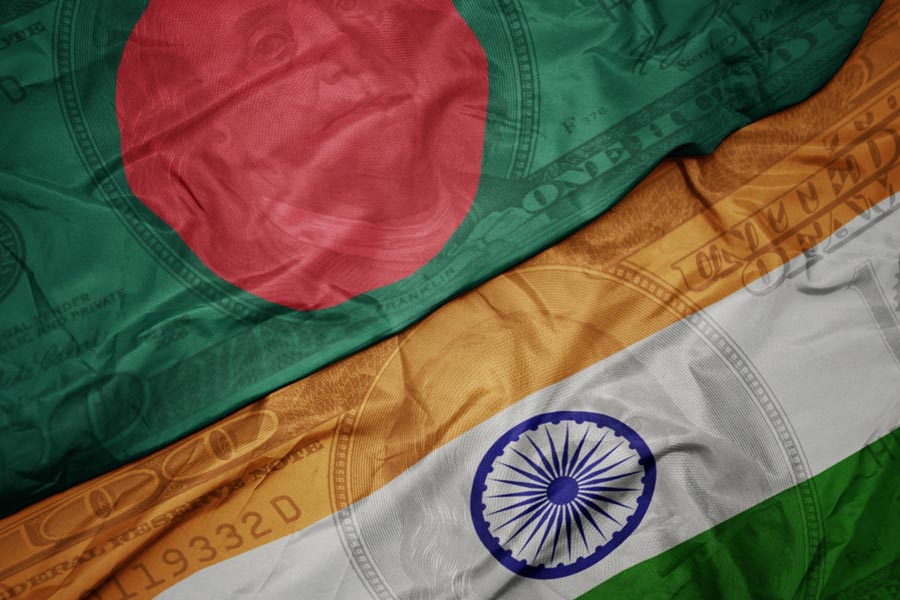The Centre’s move to restrict imports of certain goods from Bangladesh via land ports will have an impact on employment and transport revenue in Bengal, but the national interest is more important than the potential economic fallout, officials said on Sunday.
The central government on Saturday imposed port restrictions on the import of a few Bangladeshi goods such as readymade garments and processed food items, in response to similar curbs placed by Dhaka on certain Indian products last month.
“Around 20-30 trucks, carrying finished premium garments, used to come daily even after India banned third-country transhipment. The latest order will completely stop such movement via land ports. When transhipment was allowed, 60-80 truckloads of garments were entering India,” Petrapole Clearing Agents Staff Welfare Association (PCASWA) member Kartik Chakraborty said.
Truckers and workers at border logistics hubs will be affected by the port restriction order, he said.
A trade expert, declining to be named, said the finished garments from Bangladesh often make their way into modern Indian retail chains at low prices”.
“The move by the Centre may be strategic, possibly linked to national interest and recent geopolitical developments, including Dhaka’s ties with Islamabad. The national interest is more important than the potential economic fallout,” the expert said.
MSMEs to benefit
Restrictions imposed by India on certain Bangladeshi goods will help the domestic ready-made garment industry, particularly MSMEs, to enhance their competitiveness, according to experts.
“Indian textile firms have long protested the competitive edge enjoyed by Bangladeshi exporters, who benefit from duty-free Chinese fabric imports and export subsidies, giving them a 10-15 per cent price advantage in the Indian market,” thinktank Global Trade Research Initiative (GTRI) said.
Equal market access
According to experts, land port restrictions imposed by India on select exports from Bangladesh to the Northeast is expected to restore equality in the relationship. While India had hitherto allowed all exports from Bangladesh without restrictions, the transit and market access to the Northeast had been restricted by Bangladesh.
This measure by India restores equal market access for both countries.
Reciprocity
Sources said RMG imports from Bangladesh restricted to only two seaports (Calcutta and Nhava Sheva, Mumbai) is a reciprocal measure to Bangladesh imposing similar trade restrictions on Indian yarn and rice as well as selectively enhanced inspection on all Indian goods exported to Bangladesh.
On cherry picking
Experts feel Bangladesh needs to realise that it cannot cherry pick terms of bilateral trade solely for its benefit or assume the Northeast is a captive market for its exports, while denying it market access and transit. The NorthEast is integral to BIMSTEC.
With inputs from Delhi bureau

